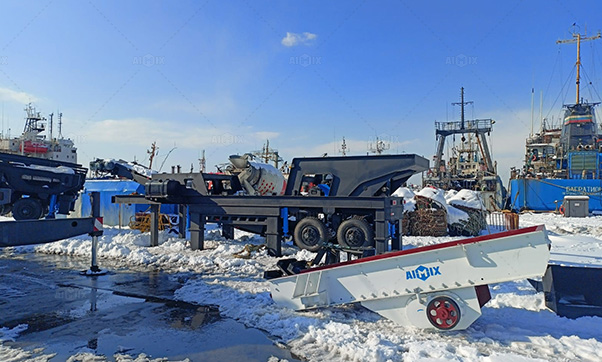- The stone crusher plant industry plays a crucial role in the construction and mining sectors by providing essential equipment for crushing rocks and stones into various sizes of aggregates.
- Understanding how suppliers and manufacturers price their stone crusher plants is essential for buyers to make informed decisions and navigate the market effectively.
## Factors influencing pricing strategies
- Cost of production and materials
- Suppliers and manufacturers consider the expenses incurred in manufacturing portable crusher, including raw materials, labor, machinery, and overhead costs.
- The availability and cost of materials such as steel, concrete, and components directly impact the overall production cost and, consequently, the pricing strategy.
- Market demand and competition
- Pricing strategies are influenced by market demand and competition levels.
- Manufacturers may adjust their prices based on supply and demand dynamics, aiming to maximize profitability while remaining competitive in the market.
- Higher demand for stone crusher plants may result in higher prices, whereas intense competition may lead to price reductions to attract customers.
- Brand reputation and product differentiation
- Established brands with a strong reputation for quality and reliability often command higher prices for their stone crusher plants.
- Suppliers may differentiate their products through unique features, technology integration, or superior performance, allowing them to justify premium pricing. Learn more info here: https://aimixcrusherplant.com/crawler-mobile-crusher/.
- Perception of value and brand loyalty also influence pricing strategies, as customers may be willing to pay more for perceived quality and reliability.
## Pricing approaches of suppliers and manufacturers
- Cost-based pricing
- Some suppliers and manufacturers adopt a cost-based pricing approach, setting prices by adding a markup to the production cost.
- This method ensures that the selling price covers all expenses and generates a desired profit margin, but it may overlook market demand and competitive factors.
- Value-based pricing
- Value-based pricing focuses on the perceived value of the stone crusher plant to customers rather than production costs.
- Suppliers assess the benefits and features of their products relative to customer needs and preferences, setting prices accordingly.
- This approach allows suppliers to capture additional value and justify premium stone crusher plant cost with unique features or superior performance.
- Competitive pricing
- Competitive pricing involves setting prices based on competitors’ prices and market conditions.
- Suppliers and manufacturers monitor competitor pricing strategies and adjust their own prices to remain competitive.
- This approach aims to attract customers by offering comparable or lower prices while maintaining profitability and market share.
In conclusion, the pricing of stone crusher plants is influenced by various factors such as production costs, market demand, competition, and pricing strategies adopted by suppliers and manufacturers. By understanding these factors and pricing approaches, buyers can make informed decisions and effectively navigate the stone crusher plant market.

Comments
No comments yet. Be the first to react!